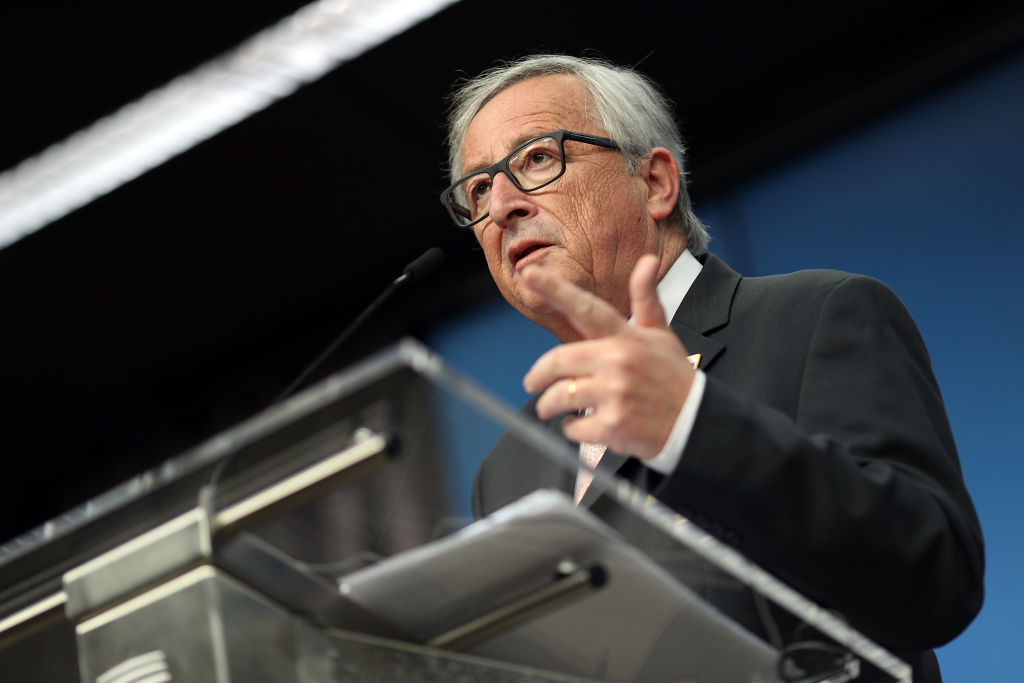|
In this mailing:
- Soeren Kern: Multiculturalism and
the Transformation of Britain in 2018: Part I
- Jiří Payne: The European Union:
An Authoritarian Body with a Humanitarian Face
by
Soeren Kern • January 1, 2019 at 5:00 am
- "We
demand the legal right to Free Speech, in an Act which will bring
an end to the ludicrous notion that 'hate speech' and 'offensive
speech' deserves people be imprisoned or charged. In short, an Act
to codify the citizens' right to freedom of speech without
government intervention." — Petition (ultimately rejected) to
the British government calling for codifying free speech.
- "A
hate crime is any criminal offense, for example assault or
malicious communications, which is perceived [emphasis
added] to be motivated by hostility or prejudice based on a
person's actual or perceived race, religion, sexual orientation,
disability or transgender identity." — From the British
government's response to the petition.
- A
Home Office review proposed legislative changes that would require
Muslim couples to undergo a civil marriage before or at the same
time as their Islamic ceremony. Such a requirement would provide
women with legal protection under British law. The review said
that nearly all those using Sharia councils were females seeking
an Islamic divorce. As a "significant number" of Muslim
couples do not register their marriages under civil law,
"some Muslim women have no option of obtaining a civil
divorce."

Paul Song, a 48-year-old pastor, was
fired from his job as a chaplain at Brixton prison in London after the
managing chaplain, Imam Mohammed Yusuf Ahmed, accused Song of promoting
"extreme" Christian views. Song said he was ousted on the
basis of false claims by a Muslim prisoner. (Image source: Christian
Concern video screenshot)
The Muslim population of Britain surpassed 4.2 million
in 2018 to become around 6.3% of the overall population of 64 million,
according to data extrapolated from a recent study on the growth of the
Muslim population in Europe. In real terms, Britain has the
third-largest Muslim population in the European Union, after France,
then Germany.
The rapid growth of Britain's Muslim population can be
attributed to immigration, high birth rates and conversions to Islam.
Islam and Islam-related issues, omnipresent in Britain
during 2018, can be categorized into several broad themes: 1) Islamic
extremism and the security implications of British jihadists; 2) The
continuing spread of Islamic Sharia law in Britain; 3) The sexual
exploitation of British children by Muslim gangs; 4) Muslim integration
into British society; and 5) The failures of British multiculturalism.
JANUARY 2018
by
Jiří Payne • January 1, 2019 at 4:00 am
- What
the Lisbon Treaty actually created was an authoritarian political
system that infringes on human and political rights.
- Article
4 states in part: "...The Member States shall facilitate the
achievement of the Union's tasks and refrain from any measure
which could jeopardise the attainment of the Union's
objectives." In other words, the interests of the Union are
above the interests of individual states and citizens.
- In
a democratic system with a healthy balance of power, a ruling
coalition can be challenged or replaced by the opposition. This is
precisely what is lacking in the EU, as the Treaty of Lisbon
requires that European Commission members be selected on the basis
of their "European commitment." This means, in effect,
that anyone with a dissenting view may never become a member of
the Commission. As history repeatedly demonstrates, where there is
no opposition, freedom is lost.

The Treaty of Lisbon considers the
interests of the European Union to be above the interests of individual
states and citizens. Jean-Claude Juncker, president of the European
Commission, complained in 2016: "Too many politicians are
listening exclusively to their national opinion. And if you are
listening to your national opinion you are not developing what should
be a common European sense..." (Photo by Dan Kitwood/Getty Images)
The Treaty of Lisbon -- drafted as a replacement to the
2005 Constitutional Treaty and signed in 2007 by the leaders of the 27
European Union member states -- describes itself as an agreement to
"reform the functioning of the European Union... [it] sets out
humanitarian assistance as a specific Commission competence."
What the Lisbon Treaty actually created, however, was an
authoritarian political system that infringes on human and political
rights.
Take the mandate of the European Commission (EC), for
instance. According to Article 17 of the Treaty:
"The Commission shall promote the general interest
of the Union... In carrying out its responsibilities, the Commission
shall be completely independent... the members of the Commission shall
neither seek nor take instructions from any Government or other
institution, body, office or entity."
Then there is Article 4, which states in part:
|































No comments:
Post a Comment